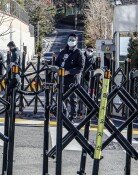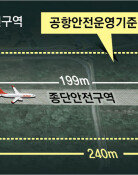Korean Railway Workers Union to Strike Today
Korean Railway Workers Union to Strike Today
Posted December. 02, 2004 23:10,
On December 2, a day before their planned general strike, Koreas unionized railway workers failed to reach an agreement in last-minute negotiations over hiring more workers.
As the railway industry is classified as an essential industry for the public good, the dispute will be submitted to the National Labor Relations Commission (NLRC) in case labor and management fail to reach a consensus.
If that happens, labor unions cannot go on a strike by law. But the railway labor union said it would stage a strike starting 4:00 a.m. on December 3, even though it is illegal.
▽Last-Minute Negotiations-
The railroad authorities and labor union had intensive talks on December 2 in the afternoon in the NLRC office in Mapo-gu, Seoul, but failed to narrow the gap on the thorny issue of how many additional workers should be hired.
Employment of more workers is inevitable as the current 24-hour shift will change into a 12-hour shift after the Korean National Railroad transforms itself into a state-owned enterprise next year.
Initially, the labor union demanded employment of 8,938 more workers, the sum of an additional 2,455 needed because of the introduction of 40-hour-work week, plus 6,483 deemed to be necessary by an evaluation of management jointly conducted by labor and management.
However, the union decreased the figure to 5,215 in a revised proposal which demands a one-year delay in the employment of 2,455 workers, and deployment of 20 percent, or 1,268, of the current team leader-level engineers to on-train work.
On the other hand, management says that such a massive supplement of personnel is impossible given the prospects that the railroad authorities will suffer at least 1.5 trillion won in annual deficits after turning into a SOE. The company proposed the employment of 1,793 people, saying it would make up for the shortfall of staff with outsourcing.
▽Government Measures-
If a considerable disruption in logistics and travel is expected in case the 21,000 unionized railway workers, engineers and mechanics all go on a strike, subway line No. 1 in the Seoul Metropolitan area (especially in Gyeonggi province), high-speed and conventional trains will be affected.
Against this backdrop, the railroad authorities announced that they would cover 80 percent of normal KTX operations (98 out of 112 trains), 58 percent of subways (764 out of 1618), and 14 percent of freight trains (58 of 411).
The Ministry of Construction and Traffic, for its part, has come up with measures to minimize inconveniences caused by the planned strike. The ministry is planning to extend the business hours and routes of local buses, lift limitation of taxi operation, and make maximum use of express buses, airplanes and trucks.
Jong-Hoon Lee Wan-Bae Lee taylor55@donga.com roryrery@donga.com






